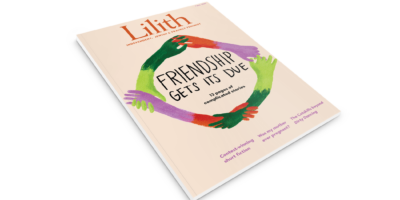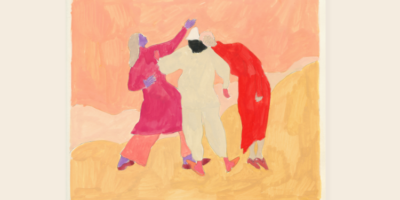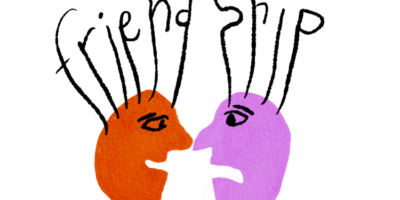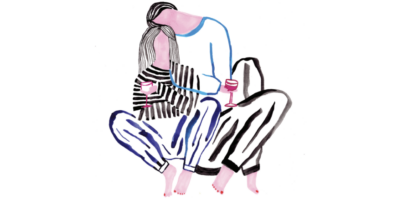
From the Editor
A friend is the person you call, text, or visit when you have had a really awful day. The person in front of whom you can be your worst, most unattractive or most vulnerable self without fear of the consequences, or the nagging thought that what you’ve said or done will be used against you down the line. A good friend is your person. You show up for one another. You go to the emergency room with good coffee and good snacks when she’s there with her injured kid. She’s the one you call when you’re facing a great joy, a great sorrow, a spiritual insightor just some everyday pain.
One of my daughters, observing an act of kindness by a buddy, texted “You’re such a good friend.”
The immediate reply? “What other kind of friend is there to be?”
I kept seeing this line surfacing as if through an 8-Ball window when I read through the very diverse and divergent friendship stories in this issue. There are so-called friends. And then there are good friends. What other kind of friend is there to be, really?
One balm for political as well as personal anguish is friendship.
“Good friendships can help keep us sane.”
I’ve been mulling over both deep and more casual friendships in my own life ever since one of our Lilith interns asked to interview me for a college course on “Girlhood.” (Who knew girlhood was even a thing worthy of academic study?) I answered her questions with some casual scene-setting remarks about my high school years. And then I surprised myself by blurting out, “My friend Judy kept me sane.” Judy was the one with the lively sense of humor, the smart girl with a teacher-mother and excellent grades who was nonetheless willing to break some rules, skip classes with me to “work on the yearbook,” laugh and speculate our way through the webs of teen relationships, aspirations, and absolutely insane social and institutional strictures that hemmed us in.
Later, in college (different crowd), my roommate asked me late one night why it is that we can’t name what draws us to our friends. “Not true!” I yelled into the dimness of our nightlight. I then, precise and analytical, listed the observable qualities in each of our suitemates that made them good company and a good match for us. But it took me a lifetime to see that, way beyond their particularities, the binding factor in our connections was kindness to one another, no matter the stresses each of us endured minute to minute: a relationship gone sour, a betrayal by a faculty member, a rude brush-off from a classmate, a disappointing political protest, even an A on a paper that felt undeserved.
The hallmark of a friend—a good friend—is like that first instruction to doctors and those entrusted with our healing: First do no harm. A good friend doesn’t add to your suffering (“What did you do to deserve the rude brush-off ?”), but knows instead to offer balm to soothe the pain. A friend occupies a place where when you knock they let you in—into their hearts or their homes, sometimes even their psyches. That’s why it’s so painful when you feel locked out.
Shakespeare (neither a Jew nor a feminist) got it right when he wrote in Sonnet 94, “They that have power to hurt and will do none… inherit heaven’s graces.” We get it. Intimate power can wound as well as heal. And restraining this power, using the intimacy of friendship for good rather than malice, is the goal. Which means that when a friendship is sabotaged, or bleeds out from cruelty or neglect, the damage is more painful that if it came from a stranger. Again Shakespeare, at the end of that sonnet: “For sweetest things turn sourest by their deeds;/Lilies that fester smell far worse than weeds.”
In a moment where TikTok videos and party games abound for how to improve your romantic relationships, we spend too little time parsing the characteristics of friendships and what we can do to nurture the good ones. Read on for some examples of why there’s no other kind of friend to be.

Susan Weidman Schneider
susanws@lilith.org
This issue of Lilith was at the printer before Israel was attacked on October 7, 2023. For first-person voices on the horrific violence, the terror that followed, and the peace we all yearn for, find our writers at Lilith.org and follow Lilith on social media.






